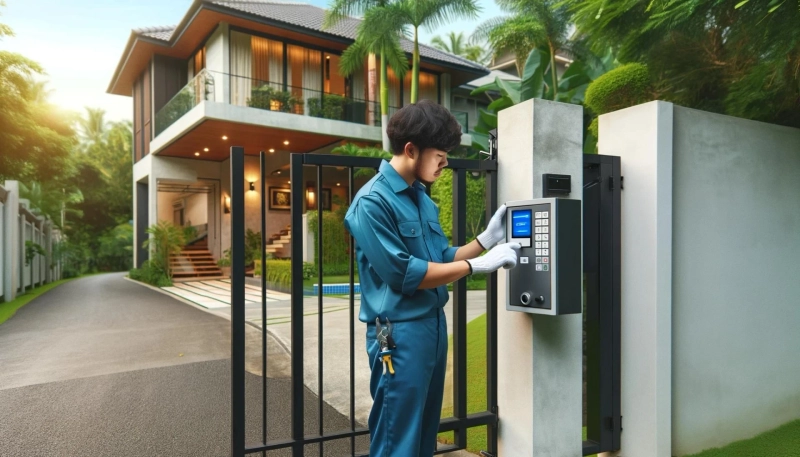Have you ever had your gate malfunction just when you are running late? Surprisingly common, it's a frustrating experience. Despite its convenience, automatic gates rely on a number of parts that may eventually break down or malfunction. You may save expensive replacements and needless frustration by identifying minor problems before they become larger ones. We'll examine the most prevalent issues, how to spot them early, and when to schedule gate opener repair in this piece.
Jerky or Slow Motion
It typically indicates an internal problem if your gate begins to move more slowly than normal or jerks when opening or shutting. Motor strain, track debris, or worn-out gears might all be the cause of this. Although lubricating the moving components could be helpful, it's preferable to get it examined if the issue continues.
Keypad or remote malfunctions
Sometimes the issue is electrical rather than mechanical. Replace the batteries and look for signal interference if your remote or keypad abruptly stops working. The receiver or internal wiring may be the problem if that doesn't resolve it. You may identify these problems before you end yourself stuck outside your gate by routinely testing your controls.
The gate does not fully close
Track misalignment or sensor problems might be the cause of a gate that won't close completely. Insects, dirt, or even tiny pebbles might obstruct the sensors, making it impossible for the gate to detect its whole range of motion. The problem can be resolved by cleaning the sensors and verifying their alignment. If the issue persists, though, it may indicate more serious motor or limit switch issues that call for expert assistance.
Strange Sounds Throughout Operation
Your gate is screaming for assistance with grinding, squeaking, or clunking sounds. These noises frequently result from misaligned components, loose chains, or a motor that is having trouble operating correctly. These noises may be avoided with routine maintenance, but if they start to become loud or regular, contact a residential gate repair company in Nashville for an examination before the issue escalates.
Electrical or Power Supply Problems
Check the power supply first if your gate doesn't move at all. The cause might be a malfunctioning transformer, defective wiring, or a tripped breaker. Over time, power variations may potentially harm the motor. Watch out for irregular gate response; this is frequently a sign of an electrical breakdown and has to be fixed right away by a trained expert.
To conclude
An essential component of the convenience and security of your house is your gate. You can identify problems before they worsen by keeping an eye on how it functions. Early detection may save you time and money, whether it's slow movement, odd noises, or electrical problems. Don't delay if you see any warning indicators; obtain expert gate opener repair before a minor problem escalates into a serious malfunction.



